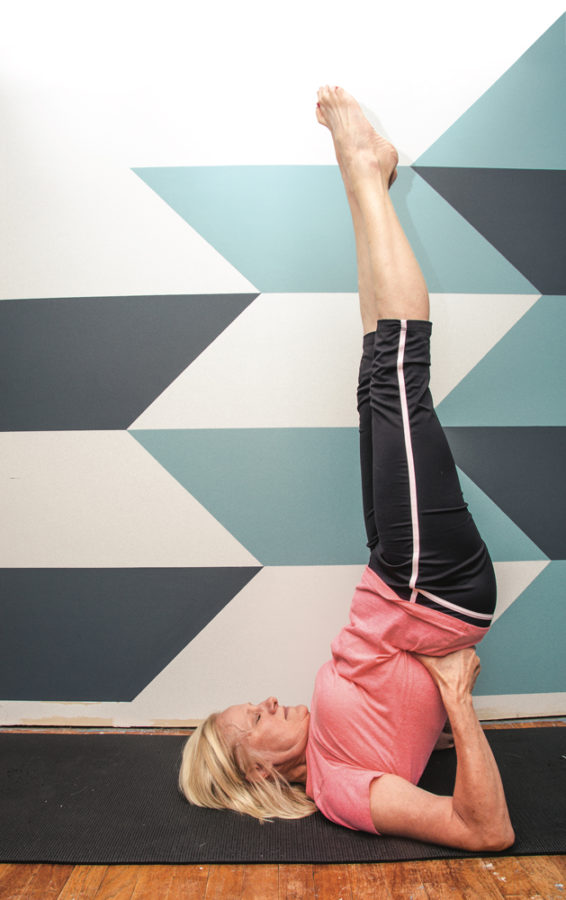Starting a Yoga Journey: Picking up the practice later in life

The practice of yoga has been in my life off and on for 40 years. Currently it’s on! I found a great teacher who listens to my concerns and is used to working with older people. It’s challenging, that’s for sure, but the rewards are numerous. When I was 19 I could do Tree Pose, bend forward, touch the floor and come back to standing pretty easily, but at age 57, that’s a different story!
As a healer in practice of chiropractic and energy work, I often advise my patients and clients to begin yoga practice. It is an excellent way to encourage more flexibility for older people (aged 49-85) who often lose flexibility as they age, even if they are doing some regular exercise. Many other types of exercise do not concentrate on fluidity in movement or in using the body/mind/spirit in a way that allows for the organic flow of energy. Weight training, bicycling, running and walking don’t really place emphasis on bringing the mind and spirit into the equation.
It starts with taking the proper breath — not too short or shallow. In fact, the one thing that I make sure to teach everyone is four-count breathing, with each count lasting about a second: Four counts inhale, four counts hold, four counts exhale (always through the nose) and four counts hold. Many people find this a challenge.
When we connect our attention to our breath we connect with life. One can live without food for some time, without water for a shorter time, but go without air for four minutes or less and you’re in serious trouble (though free divers train relentlessly to overcome that limit). Pranayama, breathing practice, is one of the main keys to living relaxed and healthy. This alone can change the trajectory of our life as we age.
Many people believe that to get older means they will be less flexible and less able to do things, leading to less fun and joy. Sounds like a curse more than a lifestyle. But with simple breathing practice that emphasizes the connection with mind and spirit, amazing fonts of peace and energy can become the day-to-day experience.
The first place that older people lose strength in is the shoulder area — no more reaching up, no more carrying heavy loads — so these muscles can atrophy quickly. You will be using them in yoga poses, and it may feel weird. Be gentle with yourself as you start to bring circulation back to areas that may be unused to working.
I also see much loss of flexibility in the feet! One thing you can do before you go to yoga class is to roll a golf ball under your bare feet as you sit, massaging and bringing more circulation to the muscles in the feet. There are thousands of nerve endings in your feet that help create your posture. Keep the circulation going! You’ll be using your feet for all the standing postures.
A few things to look for in beginning practicing yoga as an older person:
- Find a teacher that encourages you to do your best and not to keep up with the class and also has experience working with older beginners.
- Make sure the class includes pranayama as a major component.
- Try different classes and spaces until you find a good fit.
- Push yourself to your limit and a little bit further, but not into pain.
- Allow yourself plenty of time to cool down.
- Ask a buddy to go with you. More fun for both of you!
- Listen to your body and honor what it’s telling you. If you’ve stretched too far, take time to recover in Child’s Pose or other calming poses.
You can start a new exercise practice at any time in your life. The only limits to your new beginning are in your mind. Bring all your fears and inconsistencies to the mat. Your presence is your gift!
Dr. Tanya English has been working for 30 years in the healing field, first as a massage therapist, then as a chiropractor and energy healer. She owns Quantum Healing International in Coralville, Iowa. This article was originally published in YogaIowa magazine in October 2018.


